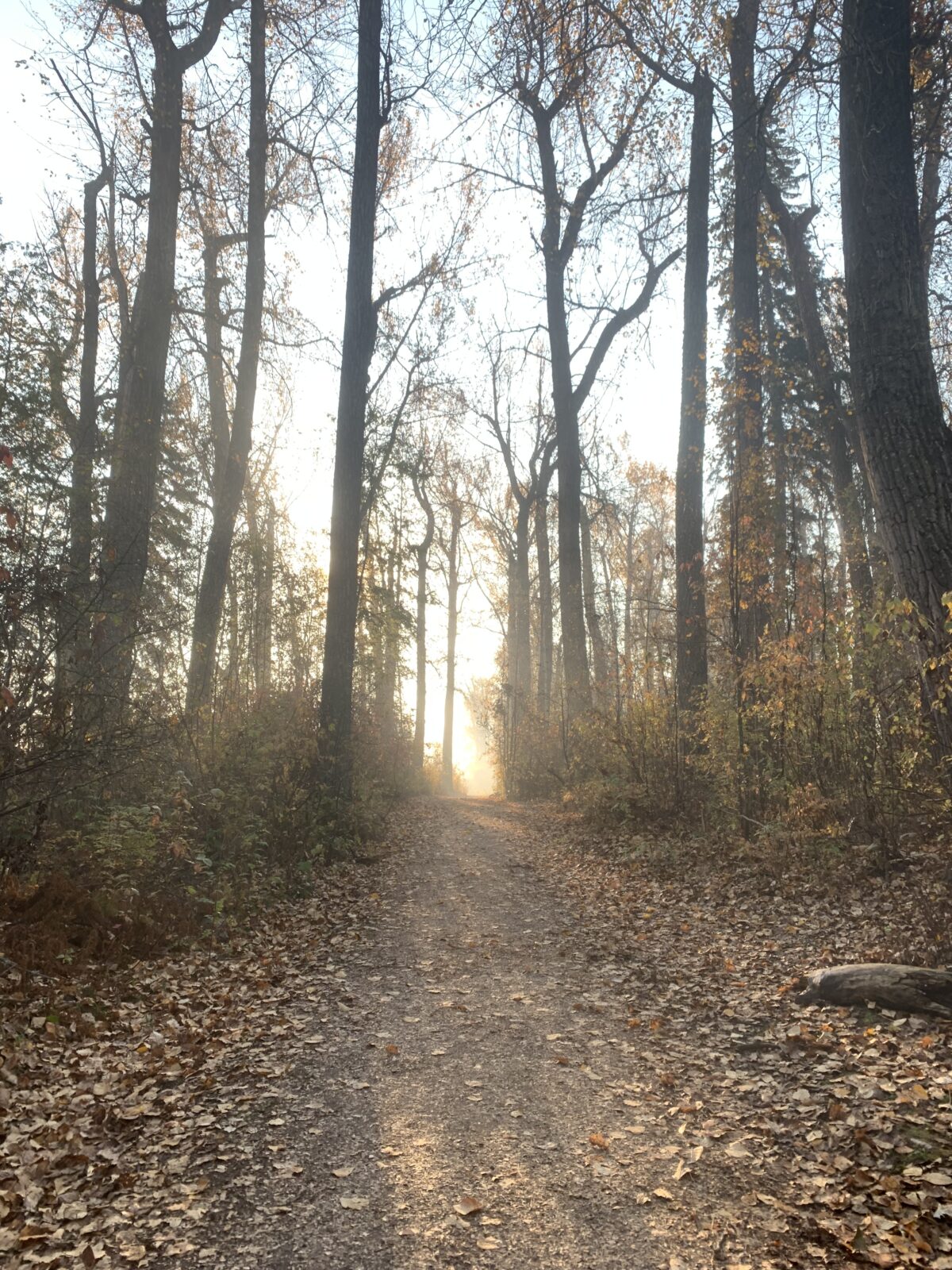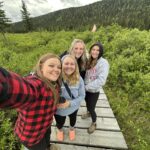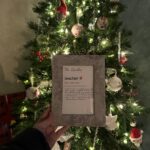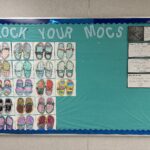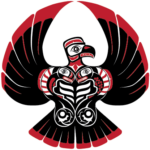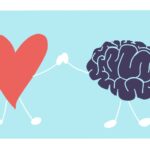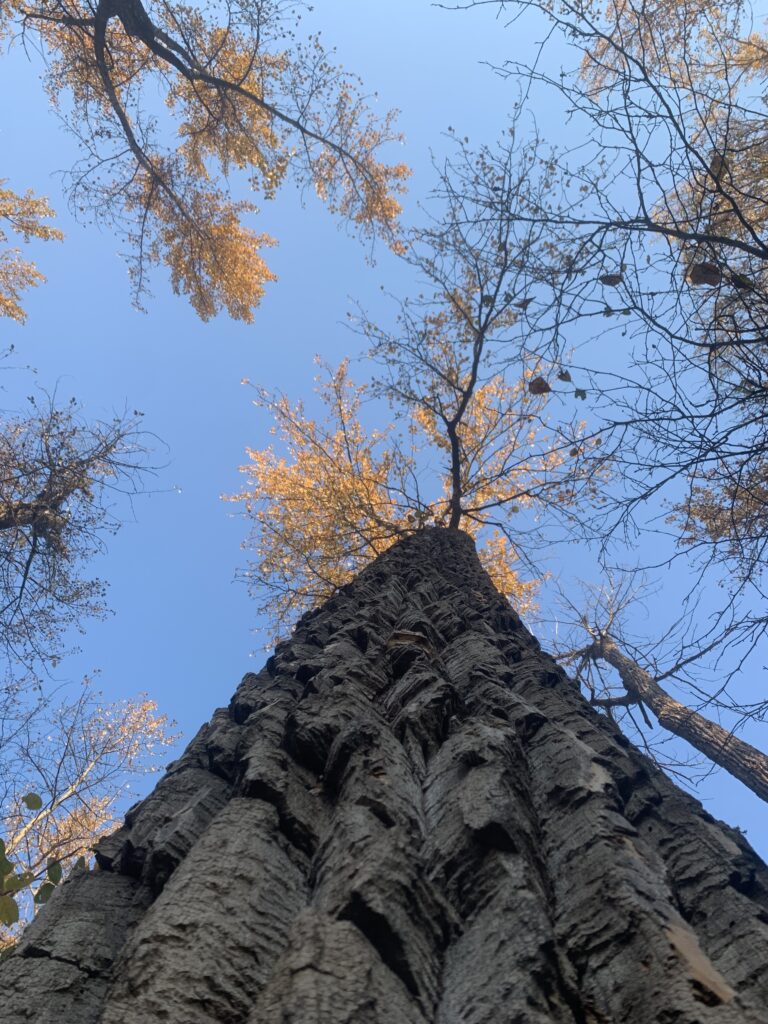
Good morning friends! Today I am talking about my experiential learning experience at Cottonwood Park in Prince George, B.C. First off, I just want to define experiential learning. Experiential learning is “a philosophy and methodology in which educators purposefully engage with students in direct experience and focused reflection in order to increase knowledge, develop skills, and clarify values” (Northern Illinois University). It is also known for learning through actions, experience, doing, discovery and exploration (Northern Illinois University).
Tell me I forget, Teach me and I remember, Involve me and I will learn.
Benjamin Franklin, 1970. (Northern Illinois University).
Today we were to walk around the park and create a lesson plan based on the land we are so fortunate to learn from, using the B.C. curriculum.
Now, if I am being honest, I am not great at math. In fact, I avoid it at all costs. But today, I was reminded of the millions of ways we can learn and teach. For example, my triad and I developed a grade three mathematics based on probability. By utilizing nature we were able to create an awesome lesson plan. Things like fallen trees, how many paths branch off the main one, how much wildlife will you see on your walk, etc. At the end, we would, tally up and determine the probability. While researching experiential learning, I found this website that holds great information and this quote below stuck out to me as an “AHA” moment.
“Mainly because we can see through plain observation that their ‘style’ of learning is naturally not inclined to sit at a desk and listen for long periods of time. That takes maturity and practice to develop, and in some people, it’s always a difficulty”
Rainforest learning center, 2020.
It reminded me that the idea of asking kids to sit down for 5-7 hours out of the day in their desks and read, write, etc. is just not feasible. Of course, they’re going to wiggle, talk, and have energy build up. They’re kids! So taking them outside to do activities, where they don’t even realize they’re learning is such a great way to change things up and connect learning to the world around us.
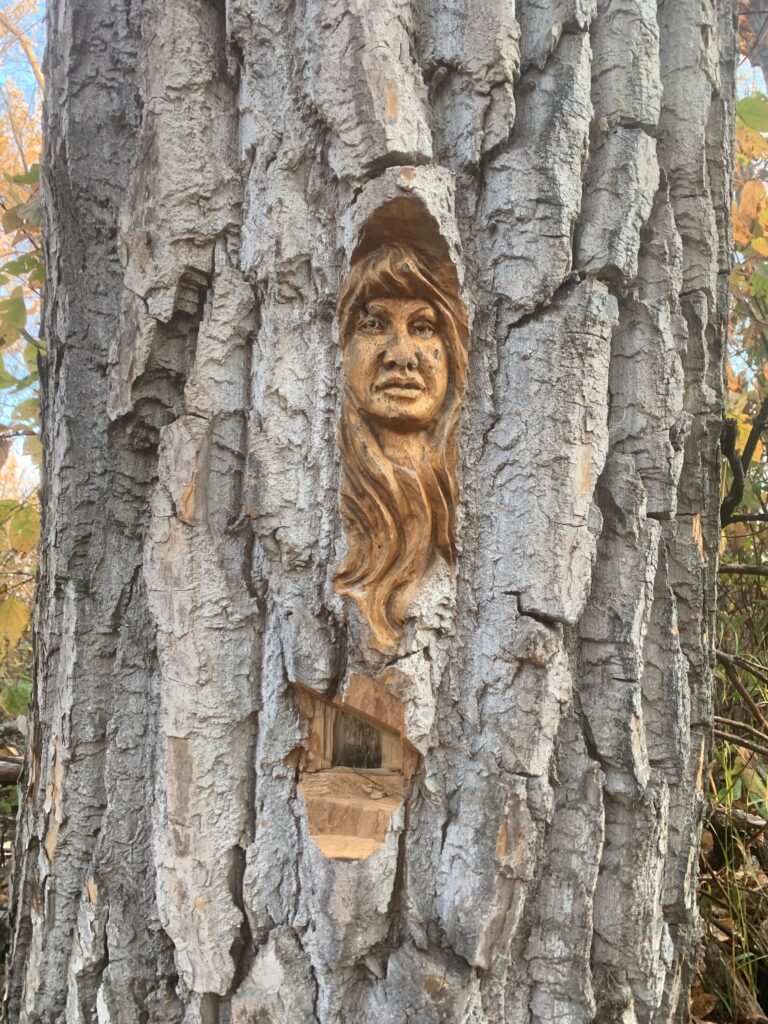
This walking curriculum also reminds me how important it is to include different ways of learning and teaching in the classroom. As well as the importance the Land can bring. Furthermore, the endless opportunities to collaborate and utilize the First Peoples Principle of Learning and The Indigenous Ways of Knowing are so exciting. Especially #2 of the First Peoples Principle of Learning:
Learning is holistic, reflexive, reflective, experiential, and relational (focused on connectedness, on reciprocal relationships, and a sense of place).
First peoples principles of learning #2.
Overall, I am loving all the outdoor classes my Education 405 is doing right now. It really gets me to look at things from different perspectives, understand how this can benefit all students of all levels, and in general, gets the wheels spinning for when I am a certified teacher!
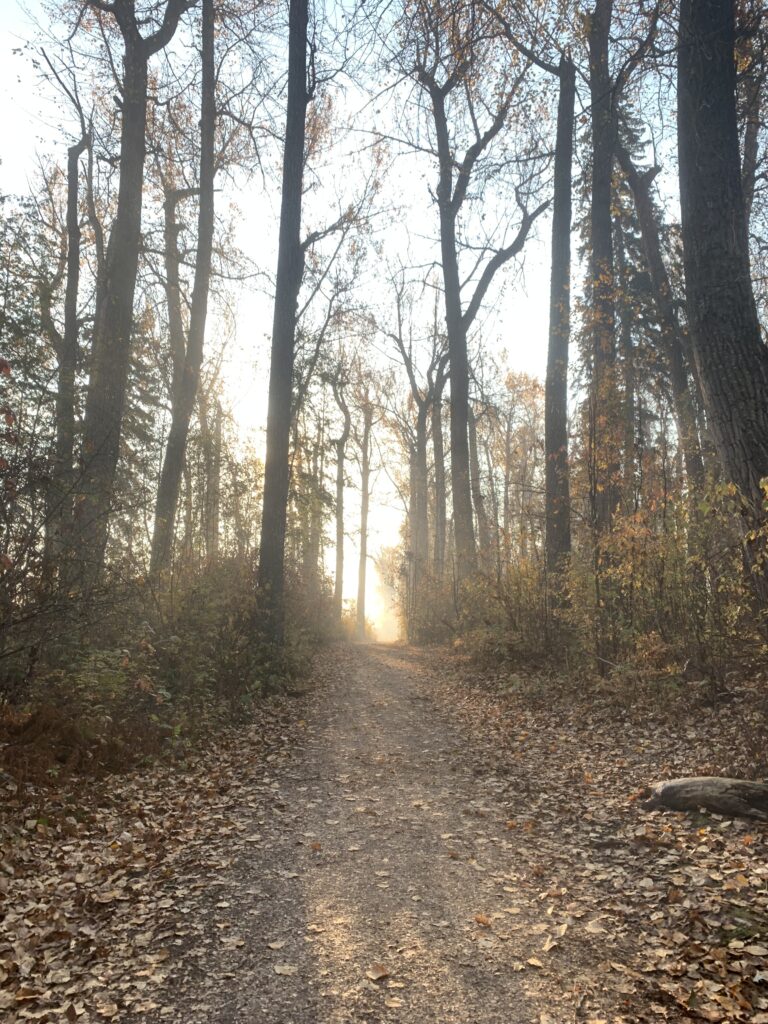
Thanks for reading and see you soon! Bye!
References:
*All photos are my own*
First Nations Education Steering Committee. (n.d.). Principles – FNESC. First Peoples Principles of Learning. Retrieved October 18, 2022, from http://www.fnesc.ca/wp/wp-content/uploads/2020/09/FNESC-Learning-First-Peoples-poster-11×17-hi-res-v2.pdf
Northern Illinois University. (n.d.). Experiential learning: Center for innovative teaching and learning. Centre for Innovative Teaching and Learning . Retrieved October 17, 2022, from https://www.niu.edu/citl/resources/guides/instructional-guide/experiential-learning.shtml
Rainforest Learning Centre. (2020, September 8). What is experiential education in early childhood, and why is it important? Rainforest Learning Centre. Retrieved October 18, 2022, from https://rainforestlearningcentre.ca/experiential-education-early-childhood-important/
